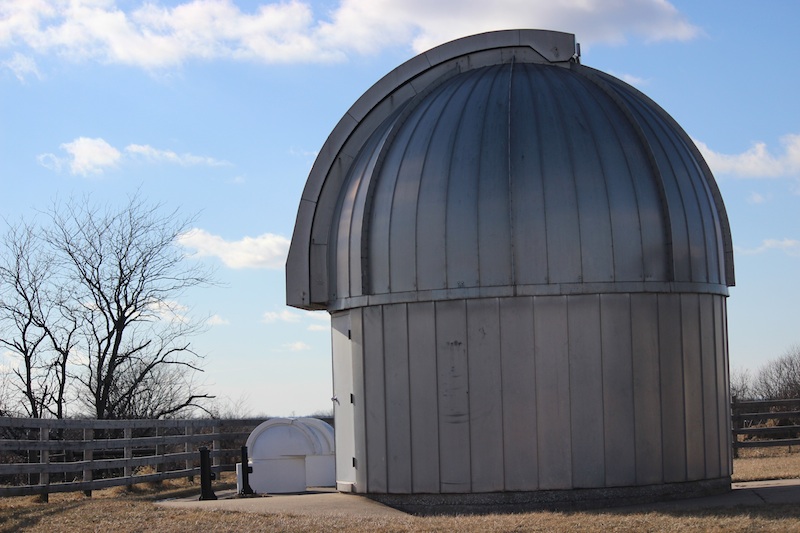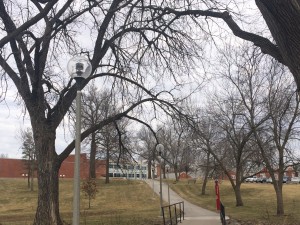
Vayujeet Gokhale, physics and astronomy professor, received a $6,000 grant from the Missouri Space Grant Consortium to study the effects of light pollution in Kirksville this semester. With this grant he hopes to make the campus lighting more energy efficient and reduce light pollution with the help of four Truman students.
Gokhale says light pollution affects students’ sleeping patterns, and it also can affect health, safety and cancer rates. Humans follow a sleep-wake pattern governed by the day-night cycle, also known as our biological clock, according to the International Dark-Sky Association. Having a lot of artificial light at night can disrupt that pattern, according to the website.

The money needed to pay for the campus electricity bill comes from students’ tuition, Gokhale says. He said this is one of the reasons he and the students involved in the project think more Truman students should care about this ongoing issue. Gokhale says the first step in his project is to do basic research and collect data. The student volunteers will use light meters to figure out how much light is wasted on campus because it goes up into the sky, Gokhale says. With this data, they can figure out ways to lower the amount of light pollution, he says.
Gokhale says the next stage of the project during the fall is to use reflective covers on the globe lights around campus to direct the light to the ground. This will prevent light from going in all directions, which he says will help students with their sleeping patterns because less light will come into their dorm rooms at night.
“Light pollution is one of those environmental issues that actually has a local solution. And that’s what makes it unique. Here’s something that can be done — let’s do it.”
– Vayujeet Gokhale, physics and astronomy professor
Gokhale says he and his group plan to raise awareness by showing documentaries about light pollution at the Del and Norma Robison Planetarium.
One student involved with this project, sophomore Céline Fuchs, says she is helping to collect data and spread awareness about light pollution on campus.
“A lot of the problems that I realized were associated with light pollution … I realized that it was something I could help hopefully make a change with, or at least bring to the attention of people who have the power to change something about it,” Fuchs says.
Junior Eric Hilker recently joined the team and says he hopes to spread awareness about this issue and its effects.
“I think we’re all ancestors of astronomers and think we all crave to see that night sky,” Hilker says. “If we all put our minds together and make sure we have better lights, we could eventually see our night sky.”
